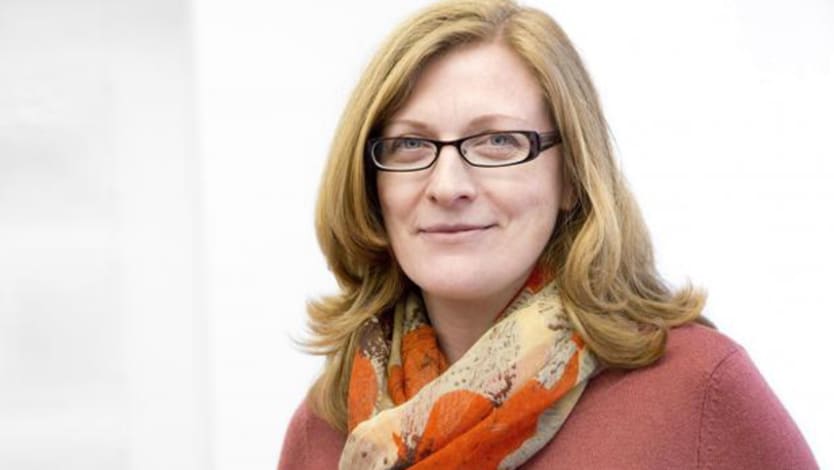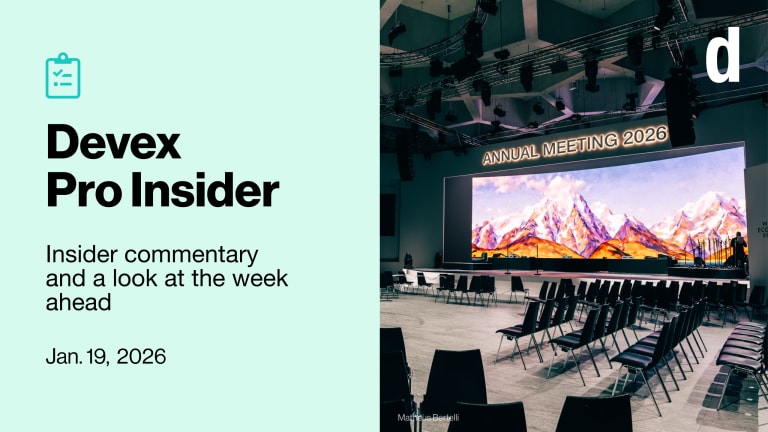
SYDNEY — Michelle Higelin has spent her career empowering women and advocating for equality within Australia and developing countries.
Out of university, she started working for a number of women’s rights organizations with a continuous career focus on social justice and development. Four years ago, she joined ActionAid Australia as deputy executive director. At the start of August, she officially became their new executive director after acting in the role for four months.
This week, Higelin spoke to Devex about the importance of career progression and her plans for a feminist leadership and strategy within the ActionAid.
Here is the interview, edited for length and clarity.
You were recruited for the executive director role from within ActionAid. In supporting the development of staff, how important do you think it is to be able to see career progression within an organization as part of staff development and retention?
ActionAid has always had a commitment to grow and nurture staff within the organization, including at the board and executive director level. It is important to have clear options for succession. As deputy executive director, I was given space to grow and show my own leadership in the organization, which helped to prepare me for my current position.
I hope my tenure will be marked by strong feminist leadership that is creating an empowering environment for all staff, with opportunities to grow and develop. That’s something I’m personally very committed to. We will achieve this by making sure there are mentoring processes and coaching for younger staff, as well as opportunities to be challenged.
It’s my hope that ActionAid will be the place to work in the sector and it will continue to grow opportunities and we will attract a lot of interest from the broader sector.
Can you explain more about the idea of being a feminist leader? How does this differ from traditional corporate leadership and what changes does it mean for the operation of ActionAid?
If we’re only focusing on women’s leadership, we’re just focusing on the number of women in power and positions of authority. Feminist leadership is a much deeper reflection on how we exercise power. This can be in relation to our working environments, it can be how we work with partners overseas or how we use power in positive ways to empower people.
Through a feminist leadership, we address deeper structures that can be in place — including policies, practices or culture that can undermine everyone from being treated equally.
A feminist leadership in practice also recognizes intersecting elements of discrimination and that means we cannot just look at women, but a whole range of diversity issues — such as the inclusion of people with a disability, inclusion of people from different cultural and ethnic backgrounds and making sure people are safe to express their sexuality.
We’re embarking on an ambitious feminist leadership agenda within ActionAid, which is training all of us — including our board and all staff — to look at how we can create a powerful culture and address deep structures that continue to impact involvement of staff from a range of backgrounds.
We have a commitment in this new strategy to look at how we can grow our cultural competence and be a place that attracts Aboriginal and Torres Strait Islander staff.
We want to make sure that everything we are doing out there, in the bigger environment, we are also doing here within the organization. We want to be living by values of feminism, sustainability, respect for the environment and respect for indigenous people of this land. We have just celebrated plastic-free July as part of this and worked with staff to make sure each of us are taking personal and organizational action to look after our environment.
In looking at ActionAid’s work on social justice, gender equality and poverty eradication, we also need to make sure our agenda is driven by a larger social change. And that means working with women’s rights movements that have been fighting for change for the past 40 or so years, partnering with and lifting the voices of those who are most affected and creating the space through our own internal processes to amplify the voices of women living in poverty, for example.
We have to reflect these values throughout the entire organization and make sure there is the systematic ability to use our power to drive change.
What are your initiation work priorities for ActionAid Australia?
Under my leadership, I am hoping we can really address two major structural barriers around women’s rights and access to justice.
One is trade and the other is humanitarian work.
The trade agenda is a male-dominated space where men have defined the rules. And they are rules that are impacting on the lives of women we are working with overseas. Unfair work conditions, cheap and exploitative labor are examples of this. In Australia we have a government that is very committed to gender equality but at the same time we have a number of trade deals that are deregulating the working environment in many countries where we are operating.
So we are committed to making sure we work to address reform in the trade system and create people-centered trade agreements.
For humanitarian, this is another area where we see male-dominated decision-making in many of the countries where we work. The decision-making in humanitarian responses is seeing budgets being directed to priorities that are gender blind. It is one of the major reasons for why we have seen protection of women’s rights poorly funded in most of the humanitarian responses.
We are committed to strengthening women’s leadership and particularly the leadership of women from disaster-affected communities to prepare and respond to disasters and conflict. We’ve got an exciting initiative coming up on World Humanitarian Day that is associated with this.
It is a volatile time in politics to be working in development, with much unknown about the global political landscape, large refugee populations and climate change increasing the risk of natural disasters. As the new executive director of ActionAid, what is your strategy to enable your organization to be responsive to changing politics and development need?
ActionAid will always work constructively with government. We have a commitment that if we are going to critique policies and practices, we will always come with alternatives. That is part of our broad commitment and ways of work.
However that does not mean we will silence our voices.
What is critical in achieving our mission is that we do speak up when we see policies and practices that undermine the dignity and human rights of people, including women.
We expect that climate change will continue to fuel the refugee crisis around the globe and that we need to make sure there are just solutions for refugees and as part of this they are treated with respect. We will continue to work with movements and alliances to pressure governments into making sure there are fair and just solutions.
One other aspect that is critical is making sure we have evidence to back up our argument. I think this is particularly critical in this environment, where we are being questions and with the fake news out there. But we should also be working in partnerships with other organizations to amplify people power that is required to spread our message and create change.
For anyone looking at working in development and considering options with NGOs, what is your recruitment pitch to join ActionAid?
Come and join ActionAid if you are passionate about women’s rights and passionate about trying to address an unjust global system that continues to see people living in poverty and experiencing inequality.
We’re an organization that is committed to addressing deeper structural causes, making sure there is space for Australians to act in solidarity with women living in poverty around the world and campaigning to address unjust policies and practices in our own country.
My commitment to staff is that I want us to have a collective vision on how we change the world and work toward our mission. It is not about one person out there.
Yes, I will lead the organization and lead our strategy, but I will lead it the way that our work is a product of the collective vision of all staff and the people we work with and partners on the ground.
So come join us and let’s start the revolution.








